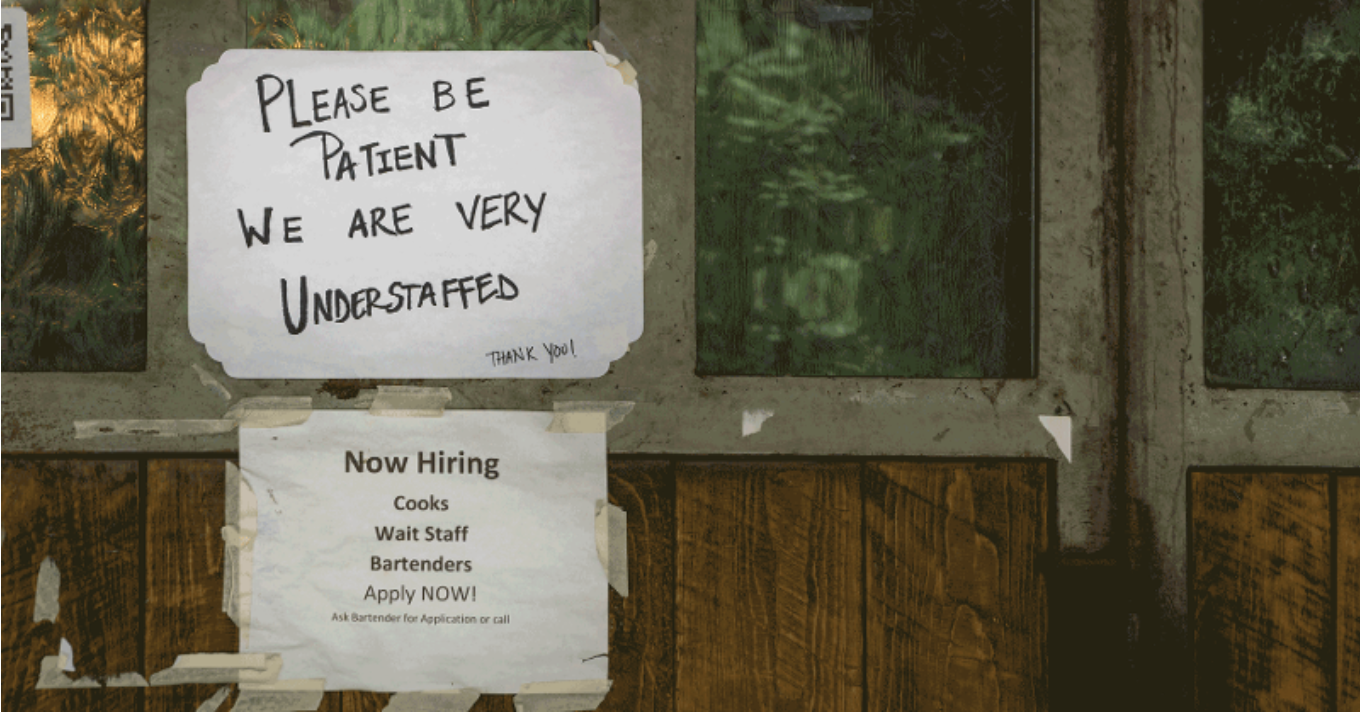Mental health and burnout. We’ve heard those terms thrown around a lot since the pandemic, so much so that it’s easy to gloss over them and keep hoping COVID-19 and its entire family leaves town. As a destination management organization (DMO), I’m sure you’re more than aware of the floodgate numbers of those who have quit the leisure and hospitality industry last year – almost one million turned in the towel in December alone and more than 4.5 million in the last five months of 2021. Experts cite mental health and burnout as main reasons for these swift and steep departures in this sector. There have been reports of:
- Employees being pressured to come to work despite testing positive for COVID-19
- A Cape Cod restaurant manager closing down for a “Day of Kindness” because of severe mistreatment from customers to their employees
- Managers working 90-hour weeks to fill in their drastic staffing gaps
- A Denver restaurant chain hired a counselor after administering a staff survey asking what they needed most. Number one on the list? Mental health support.

Six months in as the health and wellness coach here at Simpleview, and a decade-long career in the public health field, I’ve seen both the vulnerabilities and victories of organizations in supporting their employees’ mental wellbeing. That I was brought on solely to support Simpleview employees’ mental and physical health is a testament to leadership recognizing this present and future imperative in the workplace.
What does it mean to have a healthy employee population where people are happy, productive, and connected? What does it mean both for your DMO and for your business partners? Knowing how hard this sector has been hit, how can you demonstrate that mental health matters in your trade and in the greater travel community?
Today, let’s explore simple, cost-effective strategies that can strengthen both your employees’ and your own mental health during these unprecedented times, focusing on raising awareness and lowering stigma of mental health at work — whether at your DMO or in partner businesses in your community.
Raising Awareness
It’s important to note that poor mental health and burnout among the hospitality sector were substantial issues long before the pandemic made its entrance. The 2015 National Survey on Drug Use and Health revealed that hospitality and food service workers had the highest rates of substance abuse disorders; nearly 20 percent of full-time employees were illicit drug users, and 12 percent used alcohol heavily. We can only expect these numbers to be worse today.

More broadly speaking, we’ve heard it said “everyone knows someone” who struggles with mental health; over 16 million people in the U.S. suffer from depression. One out of five working Americans experiences mental illness annually, with fewer than half seeking care, despite effective treatment options. Globally, depression is the number one disability worldwide, costing the world economy $1 trillion in lost productivity every year.
So we know mental health conditions (namely depression and anxiety) are common, but would we recognize it at work if we saw it? Awareness is understanding and noticing signs that can alert you as a leader, manager, or colleague that someone may need help. Signs include:
- Excessive sleepiness, working and moving slow
- Flat affect – little to no emotion or downcast
- Lowered frustration tolerance – increased irritability, outbursts, or crying
- Messy disposition or poor personal hygiene (compared to one’s “baseline”)
- Excessive weight gain or loss
- Absenteeism – calling in sick or requesting PTO frequently
- Presenteeism – present but only half “there”
Lowering Stigma
Knowing how pervasive mental health issues are in the places we live and work, why is it so difficult to talk about them? It certainly doesn’t get nearly as much airtime in the office as someone with a physical ailment like chronic back pain.
Why not? Maybe because, unlike back pain, the causes of mental diagnoses are largely unknown. But there are many conditions that the medical community has found no causality for, illnesses like Parkinson’s disease, narcolepsy, and multiple sclerosis.

Another reason for stigmatization is, unlike a broken bone showing up on an X-ray, no diagnostic tool has been developed yet to show the incidence of mental illness. But once again, conditions like lupus and many gastrointestinal disorders can’t be scanned, X-rayed, or imaged. Doctors must go off of the signs and symptoms of these illnesses, which is what the mental health medical community does with conditions like depression and anxiety.
Call to Action
If you’re convinced workplace mental health is of growing importance, and you’d like to make it a higher organizational priority, here are two things to consider:
- Check out the American Psychiatric Association’s Center for Workplace Mental Health, a nonprofit dedicated to helping employers make mental health discussions, initiatives, and overall promotion effective and easier. They provide free, customizable resources to help increase awareness and lessen stigma within your organization — their Notice. Talk. Act.® At Work e-training module provides fresh, evidence-based content that equips leaders and managers to enhance workplace mental health and overall productivity.
- You probably know that May includes National Travel and Tourism Week, maybe you didn’t know that it’s also Mental Health Awareness Month. How could these intersect to improve your employees’ mental health, be promoted within your community, and draw in visitors? How can you encourage your restaurants, hoteliers, and other business partners to invest in their workers’ mental health? And could this make your destination a more attractive place to visit — where tourists can see that the place they’re vacationing takes care of its service industry, which could mean better service and overall experience for them as well?
We know darkness is always followed by dawn — wouldn’t it be great to emerge from these challenging times with a staff, service industry, and destination in a better, healthier place than where they began? I hope this article sparks dialogue within your team around workplace mental health and serves as a strong reminder that good business is more than compatible with supported and content employees.

